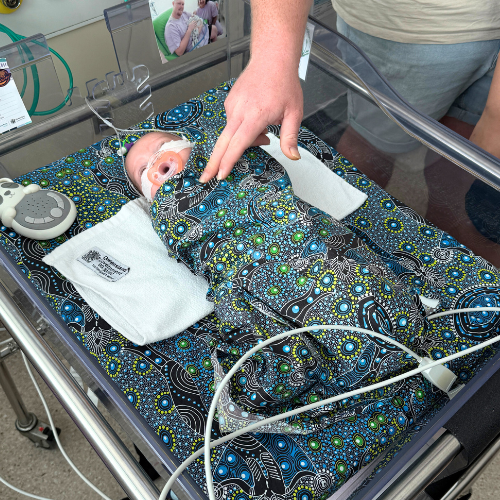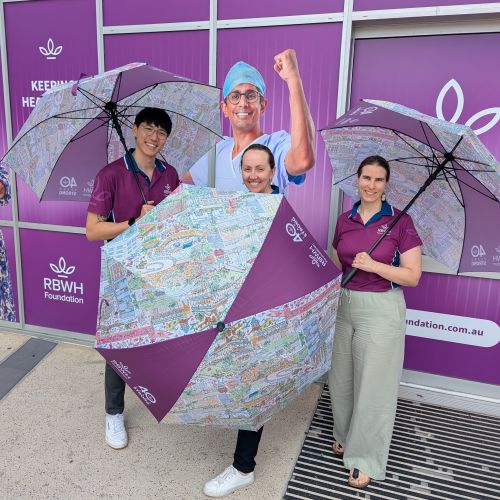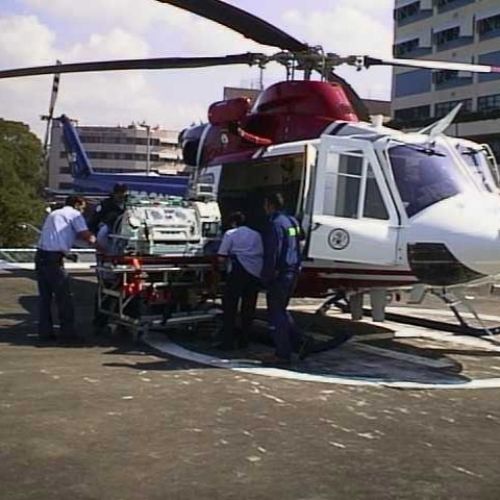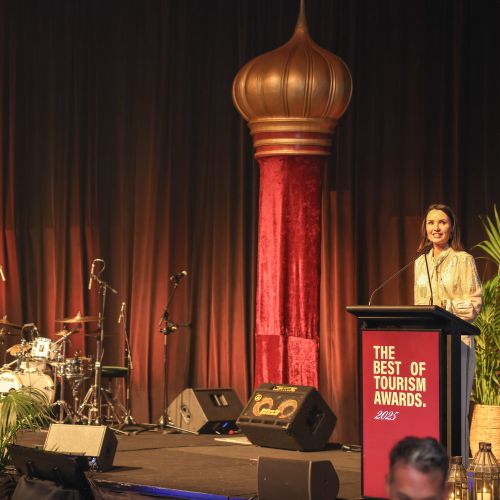Thanks to the extraordinary power of giving, Royal Brisbane and Women's Hospital (RBWH), in partnership with Herston Biofabrication Institute, is leading an Australian-first evaluation of 3D printed artificial eyes. The RBWH Foundation project grant will assess whether the new technology reduces the time and cost of producing ocular prostheses while improving patient outcomes.
Grant recipient and Senior RBWH Ocularist Nicholas Puls and his team are evaluating patient-specific 3D eye models, using photography and 3D scanning techniques.
The goal is to slash the waiting times for conventional ocular protheses of up to six weeks to a 24-hour turnaround for patients.
Artificial eyes are traditionally hand-made through a time-consuming and labour-intensive process. The success of the final product, including patient comfort and realism, is highly dependent on the manual skills of the health practitioner.
“Everything is like a fingerprint, no patient is the same,” explained Nicholas (pictured left, below).
“If you had the same injury, everything would still be different. Eyes colours are different, so there are no stock eyes that work.”



The RBWH Department of Oral and Maxillofacial Surgery produces more than 100 artificial eyes a year. RBWH is one of the only hospitals to provide this service in Queensland, highlighting the importance of the pivotal research being undertaken by Nicholas and his team.
Patients, like Sunshine Coast plumber Craig Faull (pictured above, right) , travel significant distances to access the service, from as far afield as Cairns and the state’s far west, with the process usually involving multiple trips or multi-day stays in Brisbane. This comes at significant cost to patients.
“I lose a full day coming to Brisbane whether it's for an hour appointment or a half hour appointment,” explained Craig.
“I'm just fascinated to see how the 3D printing comes up against a hand-made eye.”
Digitising the process will fast-track design and manufacture. It will also enable print files to be stored in a patient’s digital medical records, allowing the artificial eye to be easily replicated and posted, as required.
Nicholas Puls says further investment in research and trials is critical to achieving this outcome.
“A lot of people think what we do is cosmetic but it’s actually quite psychological,” said Nicholas.
“The purpose of a prosthetic eye is to create a balanced facial appearance, increase comfort in the eye socket where the eye is missing, and to boost confidence following the loss of an eye.”
The critical research by Nicholas Puls’ team was among 15 recipients of a 2022 RBWH Foundation project grants to support extraordinary opportunities.
Nicholas said the grant had provided his team an exceptional opportunity to ‘improve the quality of life for patients’.
“The application of 3D printing in the fabrication of ocular protheses in its infancy.
“This grant gives us time to work through any issue which may occur - it’s not just a case of pressing print and we can make the prosthesis.”
Through his research, Nicholas is seeking to determine any perceived differences or preference for 3D printed artificial eyes compared with ocular prostheses produced using conventional methods.
The study involves a blinded evaluation with up to 10 patients requiring an orbital prosthesis at the RBWH. Patients will follow the standard-of-care pathway to have a conventional prosthesis made, alongside one containing a 3D printed eye, which they will then evaluate during their final fitting process with a prosthetist.
Survey data will reveal any perceived differences or preference for 3D printed artificial eyes. The research also will measure production times to design and print 3D models, as well as evaluate cost of materials and feasibility of implementation within RBWH.
“The prosthesis needs to be biocompatible and we also need to work through the design process,” said Nicholas.
“Research is hugely important. It’s time that we need, and this grant allows us that time. Without this grant, given the time and cost involved in research, we most likely would not be able to proceed.”
RBWH Foundation CEO Simone Garske sees Dr Puls’ research as having enormous potential to transform patient outcomes in the field.
“Successfully digitising the ocular prostheses process will deliver a world-class service to all Queenslanders at the RBWH and make the pathway to complex procedures such as these so much easier for patients,” said Ms Garske.
Support extraordinary opportunities, like this, by donating today.










